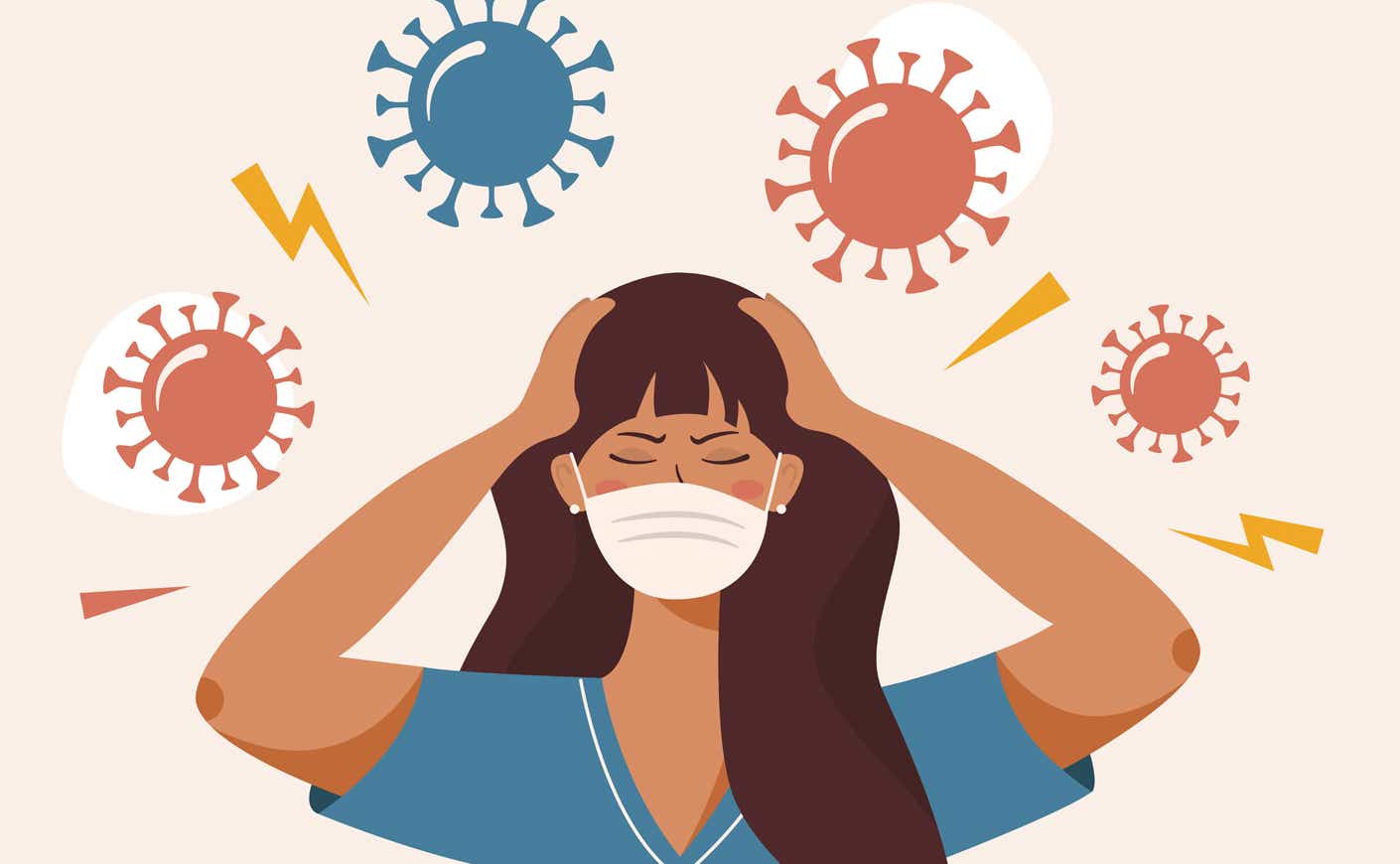The highly contagious Delta variant has reached over 100 countries, tearing through unvaccinated populations and prompting lockdowns across the globe. According to new estimates released this week by the Centers for Disease Control and Prevention, Delta is now the dominant variant in the U.S.
Here’s what health experts know so far about Delta, how effective vaccines have proven against it, and its potential risk to the U.S.
What is the Delta variant and how contagious is it?
The Delta variant, known as B.1.617.2, was first detected in India last year. In May, the World Health Organization classified it as a “variant of concern” — a label given to strains that have the potential to be more contagious, more potent, or more resistant to vaccines or other treatments.
Public health officials have reported that Delta may be 50 percent more contagious than the Alpha variant, which ripped through the U.K. and had been the dominant strain in the U.S. before it was usurped by Delta. And more than twice as contagious as the original strain discovered in Wuhan, China.
WHO officials have described Delta as the “fastest and fittest” coronavirus strain yet, with the ability to “pick off” the most vulnerable individuals.
The variant has the potential to be “more lethal because it’s more efficient in the way it transmits between humans and it will eventually find those vulnerable individuals who will become severely ill, have to be hospitalized and potentially die,” Dr. Mike Ryan, executive director of the WHO’s health emergencies program, said at a news conference.
Will the Covid vaccines protect us against the Delta variant?
The short answer is yes. Studies have shown that vaccines still provide strong protection against the delta variant. A study conducted in the U.K. found that two doses of Pfizer’s vaccine was 88 percent effective against the variant (compared to 93 percent against Alpha). Moderna’s vaccine, which uses the same technology as the Pfizer jab, is expected to provide a similar level of protection.
Johnson & Johnson also reported its vaccine remains effective against the variant, though also showed a small drop in potency.
“Right now, they are working,” CDC Director Rochelle Walensky said of the available vaccines in an interview with Good Morning America. “So I would encourage all Americans to get your first shot and when you’re (ready) for your second, get your second shot and you’ll be protected against this Delta variant.”
Will more people get vaccinated as the shots get formal FDA approval?
Physician Dara Kass tells KCM she thinks more Americans will get a shot now that the Food and Drug Administration has officially approved Pfizer’s vaccine, but in general they’ll likely be motivated less by personal choice than by how businesses respond to the FDA’s sign-off.
“The full approval is much more powerful in getting organizations to mandate vaccines,” Kass said. “There are people that are not vaccine reluctant or anti-vax, but they are waiting for something to incentivize them to do it. For them, it’ll be their employer, it’ll be some recreation facility, it’ll be something thats mandating it for them to do something they want to do. And [FDA approval] will incentivize those places to require vaccination.”
And what about the formulas from Moderna and Johnson & Johnson, which haven’t yet been cleared by the FDA beyond emergency use? Kass says those approvals are on the way, but generations of underinvestment in public health mean the agency simply isn’t equipped to move any quicker than it already is.
“The bottom line is that they’re coming,” she said of Moderna and J&J approvals. “Unfortunately, if we are going to let the FDA do its job appropriately, we just have to have faith that they’re working as fast as they can.”
Does the Delta variant cause different symptoms?
There hasn’t been much research into this. But a survey conducted in the U.K., where the Delta variant accounts for about 90 percent of cases, suggests the symptoms may be different than those caused by earlier strains.
Headaches, runny noses, and sore throats have been the most frequently reported symptoms among participants in the study, while loss of smell has become less common.
Will the Delta variant cause a new surge in the U.S.?
Australia and some countries in Asia have renewed lockdown measures in order to curb Delta outbreaks. Most of these countries have low vaccination rates. (For instance, less than 11 percent of Australians are fully vaccinated, compared to 48 percent of Americans.)
But vaccinations across the U.S. are spread pretty unevenly, causing states like Nevada and Missouri to see a rise in cases. The CDC has estimated that Delta is to blame for about 73 percent of infections in Missouri.
CDC projections show there could be a moderate uptick in cases among these pockets of unvaccinated people.









